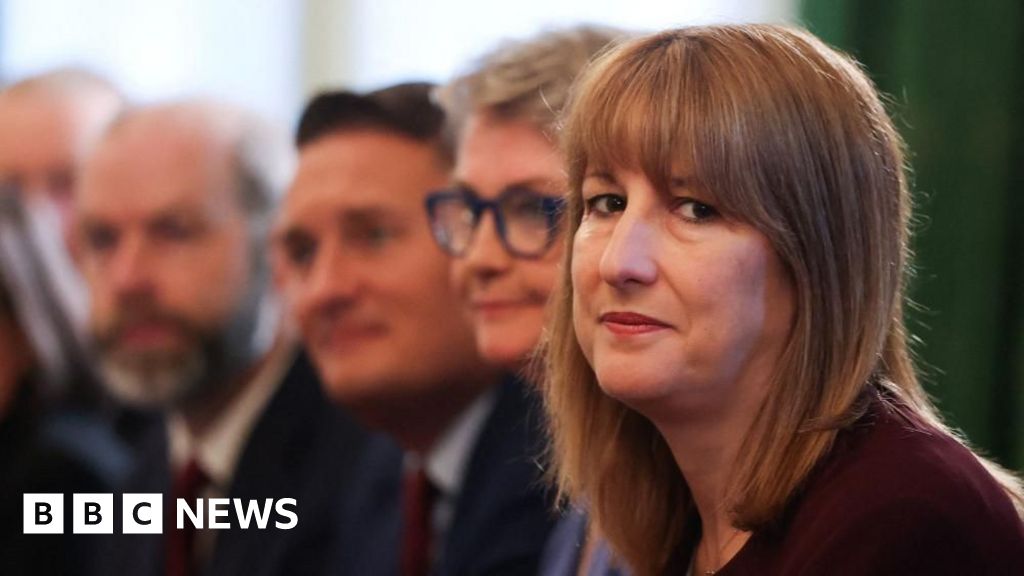Business
Reeves Limits Treasury Fund Access Before Upcoming Budget

Rachel Reeves, the Chancellor of the Exchequer, has announced a significant restriction on government departments’ access to the Treasury’s emergency funds ahead of the upcoming budget. This decision impacts the £9 billion Treasury Reserve, which is intended for “genuinely unforeseen, unaffordable, and unavoidable pressures.” Recent allocations from this fund have been used to support higher public sector wages and compensation payouts.
In a letter sent to her cabinet colleagues, Reeves emphasized that the Treasury would only consider releasing reserve funds to those departments that have already maximized their savings. This announcement comes less than 11 weeks before Reeves is scheduled to deliver Labour’s budget on November 26, 2023. The move aims to help her adhere to strict borrowing rules while addressing the pressing need to stimulate economic growth and maintain balanced public finances.
Reeves’s approach seeks to minimize government borrowing and keep departmental spending within the limits outlined during the June Spending Review. She stressed that any funds borrowed from the reserve will need to be repaid, adding a layer of accountability to the process. In her address, she outlined her fiscal strategy, which focuses on “reducing inflation, controlling spending, and kickstarting growth.”
Economic Context and Challenges Ahead
Reeves highlighted concerns over recent fragilities in bond markets across various advanced economies, stating that “stability is more important than ever to underpin growth in a volatile global environment.” She underscored the importance of living within financial means, noting, “I do not think there is anything progressive about spending £100 billion a year on paying off debts accrued by previous governments.” Instead, she expressed a preference for allocating resources to critical issues, such as reducing hospital waiting lists and enhancing national security.
This tough message is not only directed at her cabinet but also towards the markets and the Labour Party’s backbench MPs. During a session in the House of Commons, Reeves encouraged her colleagues to avoid the temptation of sidestepping tough spending choices.
The recent Spending Review has already reduced the Treasury Reserve from its typical level of about £14 billion per year. The Institute for Fiscal Studies has pointed out that this reduction leaves limited room to address unforeseen financial pressures. Forecasts regarding the amount of money Reeves needs to secure to meet her self-imposed borrowing rules vary significantly, with estimates ranging from £25 billion to as much as £50 billion, according to the National Institute of Economic and Social Research.
In an exclusive interview with the BBC last week, Reeves downplayed the larger estimate, expressing her determination to “get the balance right” in her upcoming budget presentation. She reiterated her two non-negotiable rules regarding government borrowing: that day-to-day costs be covered by tax revenues rather than borrowing and that the government aims to reduce debt as a share of national income by the end of this parliament in 2029-30.
Calls for Tax Reform
The head of the Confederation of British Industry, Rain Newton-Smith, has called for a commitment to tax reform rather than simply increasing taxes. In a recent opinion piece in The Guardian, she stated that businesses have been grappling with ongoing cost pressures due to increased employer National Insurance Contributions and the National Living Wage, as well as persistent price hikes.
Newton-Smith cautioned that the Chancellor must explore alternative avenues for revenue generation instead of “raiding corporate coffers again.” She urged the government to embrace long-term strategic tax reforms instead of adhering rigidly to previous manifesto promises or outdated economic models.
As the Labour government prepares for the budget announcement, the focus remains on navigating a complex economic landscape while addressing pressing public needs and maintaining fiscal responsibility. The upcoming budget will be closely scrutinized by both the public and financial markets as it will set the tone for the government’s economic strategy moving forward.
-

 Health3 months ago
Health3 months agoNeurologist Warns Excessive Use of Supplements Can Harm Brain
-

 Health3 months ago
Health3 months agoFiona Phillips’ Husband Shares Heartfelt Update on Her Alzheimer’s Journey
-

 Science1 month ago
Science1 month agoBrian Cox Addresses Claims of Alien Probe in 3I/ATLAS Discovery
-

 Science1 month ago
Science1 month agoNASA Investigates Unusual Comet 3I/ATLAS; New Findings Emerge
-

 Science4 weeks ago
Science4 weeks agoScientists Examine 3I/ATLAS: Alien Artifact or Cosmic Oddity?
-

 Entertainment4 months ago
Entertainment4 months agoKerry Katona Discusses Future Baby Plans and Brian McFadden’s Wedding
-

 Science4 weeks ago
Science4 weeks agoNASA Investigates Speedy Object 3I/ATLAS, Sparking Speculation
-

 Entertainment4 months ago
Entertainment4 months agoEmmerdale Faces Tension as Dylan and April’s Lives Hang in the Balance
-

 World3 months ago
World3 months agoCole Palmer’s Cryptic Message to Kobbie Mainoo Following Loan Talks
-

 Science4 weeks ago
Science4 weeks agoNASA Scientists Explore Origins of 3I/ATLAS, a Fast-Moving Visitor
-

 Entertainment4 months ago
Entertainment4 months agoLove Island Star Toni Laite’s Mother Expresses Disappointment Over Coupling Decision
-

 Entertainment3 months ago
Entertainment3 months agoMajor Cast Changes at Coronation Street: Exits and Returns in 2025









